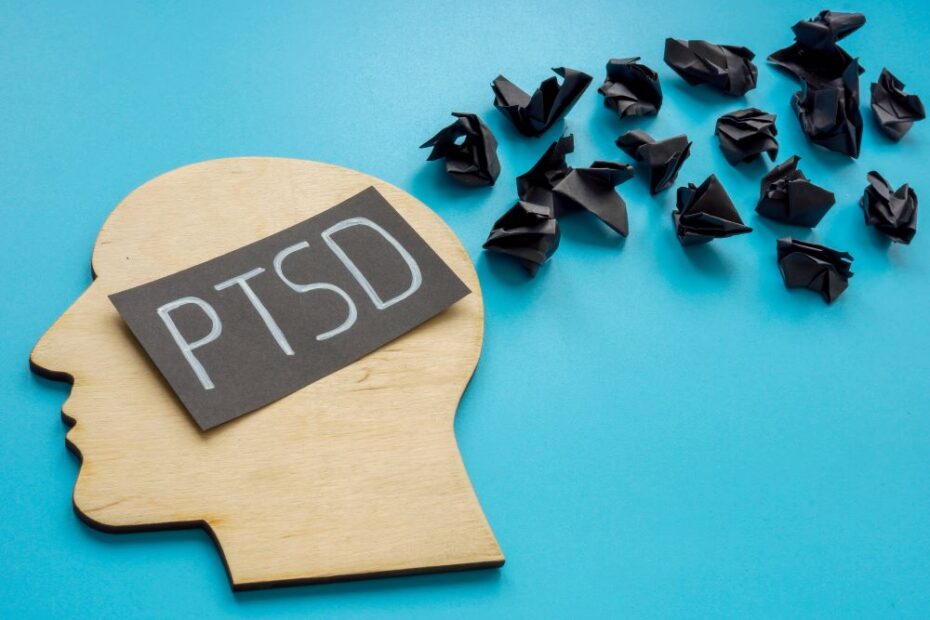PTSD is a debilitating mental health condition that can significantly impact people’s lives. After a traumatic event, such as an assault, a serious accident or some other form of violence, PTSD plunges victims into a spiral of nightmares, flashbacks and persistent anxiety. For victims, the road to recovery can seem long and difficult.
In Quebec, IVAC (Indemnisation des Victimes d’Actes Criminels) offers financial compensation to individuals facing this type of challenge. Whether you’re a direct victim of crime, or a loved one affected by trauma, IVAC offers resources to ease the burden and facilitate your recovery.
In this article, our IVAC lawyers introduce you to IVAC’s services and compensation options geared toward helping you cope with post-traumatic stress disorder.
What is post-traumatic stress disorder (PTSD)?
Post-traumatic stress disorder (PTSD) is a psychological disorder that occurs after a person has experienced a severely traumatic event, such as physical or sexual assault, a natural disaster, a serious accident or a war. PTSD does not necessarily develop right after the event, but can appear weeks or even months later.
PTSD is a “normal” reaction to an abnormal situation. However, if left untreated, it can significantly impact the quality of life of those affected.
Symptoms of post-traumatic stress disorder
PTSD can cause a variety of physical, emotional, and cognitive symptoms, which can be more or less intense and last a different amount of time for each person. Symptoms are often grouped into four main categories:
- Reliving the traumatic event: People with PTSD may relive the traumatic event through nightmares or flashbacks. This causes them to experience intense distress, as if they were reliving the situation. They could also be haunted by intrusive thoughts that emerge unexpectedly and constantly remind them of the traumatic event, leading to profound emotional distress.
- Avoidance: PTSD sufferers tend to avoid places, people or activities that might remind them of the traumatic event. This can lead to social isolation and a loss of interest in activities they once enjoyed.
- Hypervigilance: Hypersensitivity to noise, movement or any other stimulus that might remind the person of the trauma is common. This can take the form of exaggerated startle movements or a constant sense of imminent danger. Insomnia, concentration problems, and excessive attention to potential threats are common symptoms that can interfere with the daily lives and well-being of individuals with PTSD.
- Cognitive and emotional changes: People suffering from PTSD may feel a strong sense of guilt or shame linked to the traumatic event, which is often irrational but nonetheless deeply rooted. They may show increased irritability and even outbursts of anger that have a negative effect on personal relationships and make it difficult to maintain a stable lifestyle.
Support services and compensation for victims experiencing PTSD
If you’ve experienced PTSD as a result of a crime, it’s important to know about the support services and compensation available to help you heal. Quebec offers a variety of resources that provide victims with both psychological and financial support.
CAVAC
The Centres d’Aide aux Victimes d’Actes Criminels (CAVAC) play a key role in providing immediate and long-term support to victims, loved ones and witnesses of crime in Quebec. There are CAVACs in every region of the province, and they offer free, confidential services to help victims regain their emotional balance and navigate the Quebec legal system.
CALACS Centres
Centers d’Aide et de Lutte contre les Agressions à Caractère Sexuel (CALACS) are organizations dedicated to women and men who are victims of sexual assault. CALACS provide individual and group support services and information sessions. They also work with other community services to provide full, personalized support tailored to the needs of each victim.
IVAC
Indemnisation des Victimes d’Actes Criminels (IVAC) is a Quebec government program designed to provide financial and psychosocial support to people who have suffered trauma as the result of a crime. The compensation program covers a broad range of services that help victims overcome the consequences of traumatic events. Victims can get help with medical expenses, psychological counseling, and loss of income.
IVAC recognizes that PTSD is a legitimate outcome of a criminal offense and offers targeted compensation for individuals who suffer from it. L’Indemnisation des Victimes d’Actes Criminels functions under the authority of the Commission des normes, de l’équité, de la santé et de la sécurité du travail (CNESST).
Possible IVAC compensation for victims suffering from PTSD
IVAC provides a range of benefits designed to address financial losses and support the rehabilitation of people suffering from PTSD after a criminal offense. Benefits offered by IVAC for victims suffering from PTSD include:
- Reimbursement of expenses for medical and psychological treatments: IVAC compensation can cover the costs of medical consultations, psychological treatments and medication required to treat PTSD.
- Salary compensation: If PTSD prevents the victim from returning to work, IVAC can offer financial compensation of up to 90% of the actual salary at the time of incapacity. The compensation may be provided for a set period, depending on the severity of the trauma and the progress of recovery.
- Rehabilitation and social reintegration costs: IVAC may also cover costs associated with physical and psychological rehabilitation, including moving costs if the victim has to change residence to preserve their safety or well-being.
Who is eligible for IVAC compensation?
Effective October 13, 2021, the eligibility criteria for these benefits have been expanded. Now, any individual is eligible who has experienced physical or psychological harm after March 1, 1972, as defined by the Criminal Code (with the exception of property crimes).
Additionally, the definition of ‘victim’ has been broadened to include not only the individual who was directly harmed, but also their parents, children, spouses, dependents, relatives, and even witnesses and rescuers (people who were injured while trying to prevent a crime or assist a victim) of the criminal act.
To be eligible for IVAC financial assistance, the victim must meet specific criteria. The traumatic event must be linked to a criminal act that is recognized by law, such as assault, domestic violence, rape or other serious offence. Hether you are eligible may also depend on the type of after-effects you are suffering, and how severe they are. For example, for victims suffering from PTSD, the disorder must be diagnosed by a health professional, and the symptoms must be clearly linked to a specific criminal event.
Apply for IVAC compensation with Bégin Avocat
If you or a loved one are suffering from post-traumatic stress disorder as a result of a criminal act, you can apply to IVAC for financial compensation. The IVAC lawyers at Bégin Avocat specialize in the defense of victims and are here to help. We will guide you, gather the necessary evidence and maximize your chances of obtaining the compensation you are owed.
Have you already filed a claim, but you are not satisfied with the compensation you’ve been awarded? Bégin avocat will challenge the IVAC’s decision as quickly as possible.
For personalized, professional legal support or to effectively challenge an IVAC decision, consult our team of crime victim compensation experts today.



